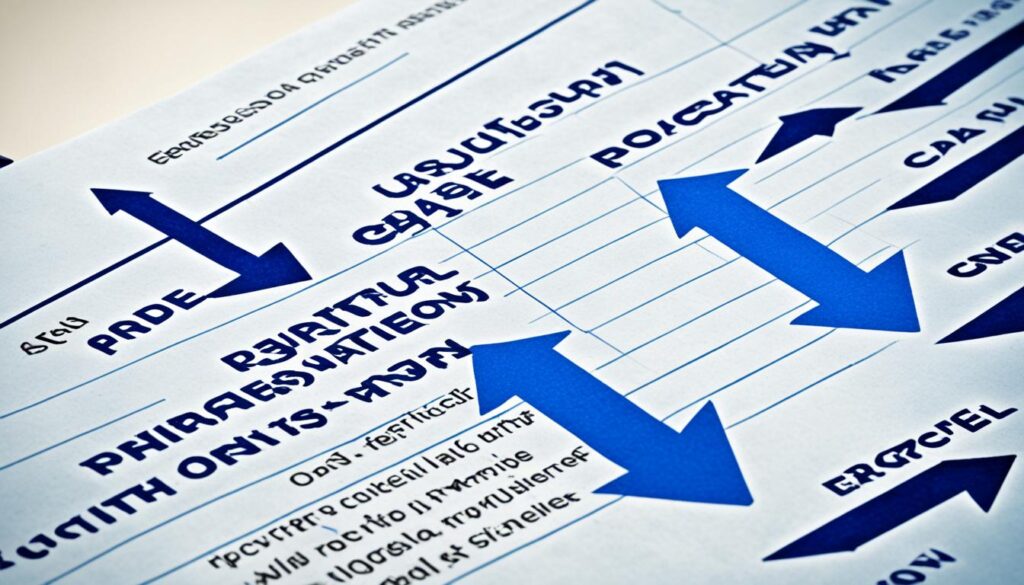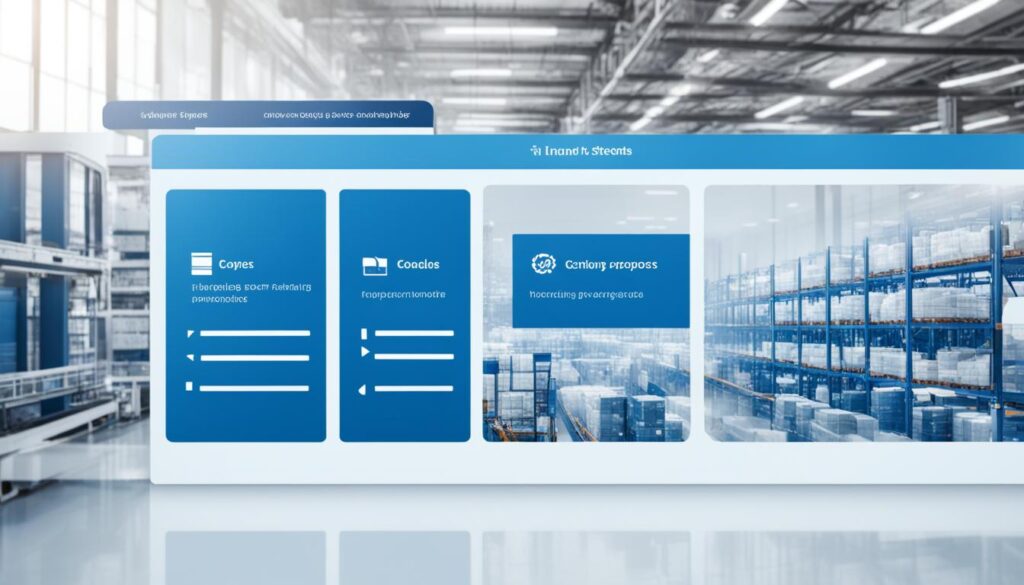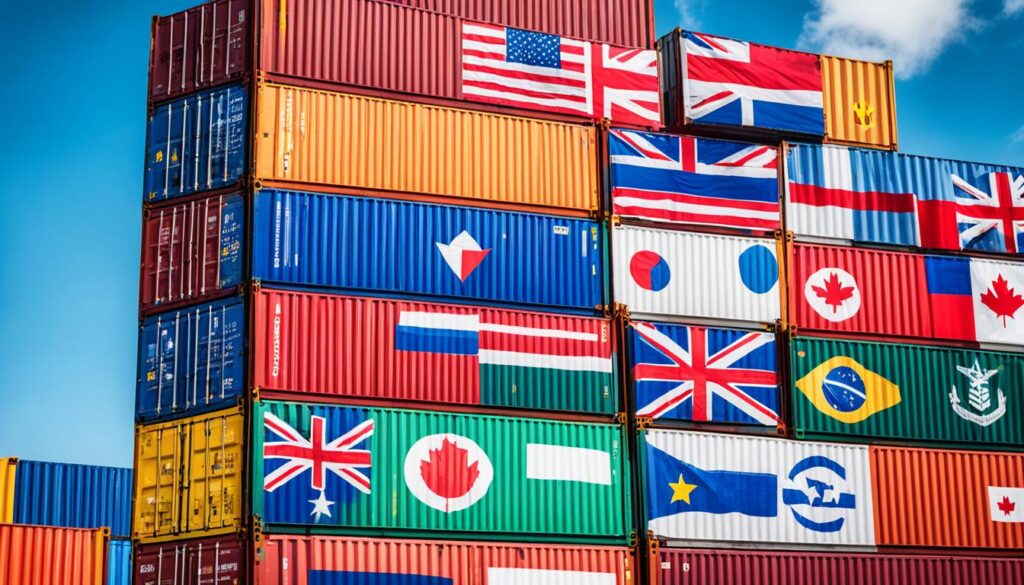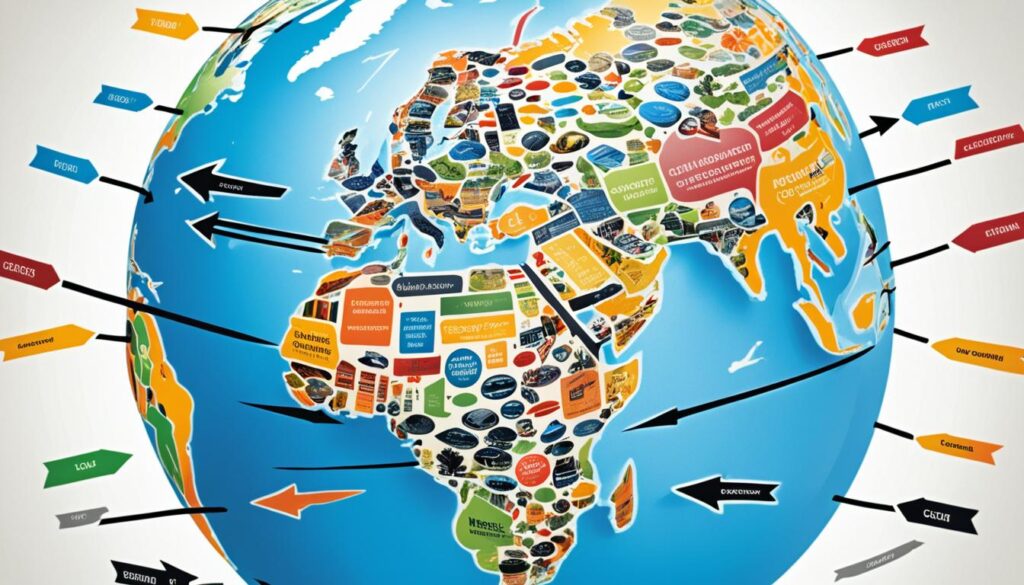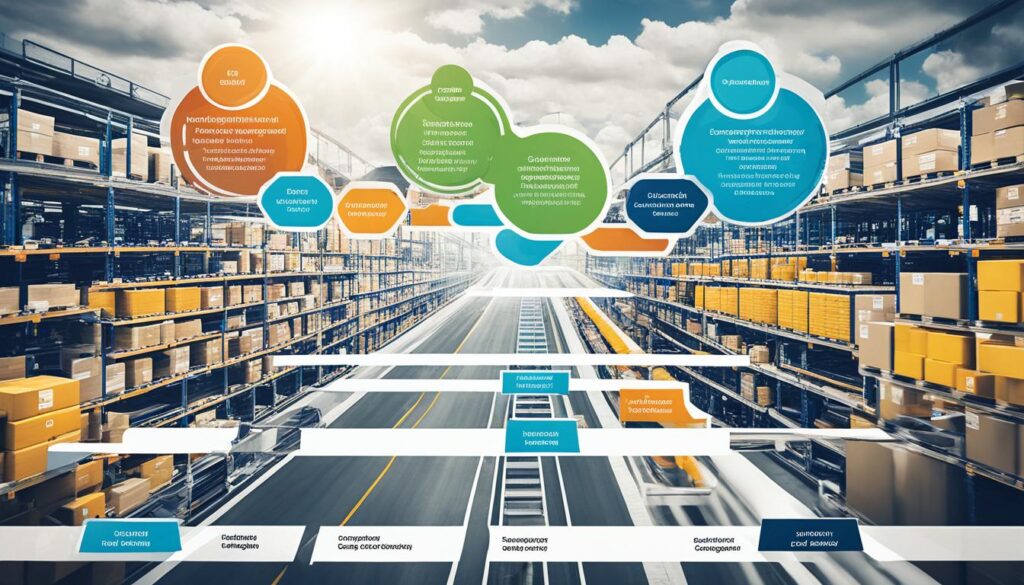Do you know what it takes to ensure smooth operations and compliance in the U.S. market?
Understanding trade regulations, import regulations, and export compliance is essential for businesses operating in the United States. Compliance with these regulations not only ensures legality but also contributes to the success and growth of your business.
From determining if your product requires an export license to establishing an effective Export Compliance Program (ECP), there are several steps and agencies involved in navigating the complex landscape of trade regulations.
In this article, I will guide you through the key aspects of trade regulations in the U.S. market, providing valuable insights and practical tips to help you stay on the right side of the law and thrive in your import and export endeavors.
Key Takeaways:
- Understanding trade regulations is crucial for businesses operating in the U.S. market.
- Compliance with import and export regulations ensures smooth operations and avoids legal issues.
- Determining if your product requires an export license is the responsibility of the exporter.
- The Bureau of Industry and Security (BIS) and the U.S. Department of State’s Directorate of Defense Trade Controls are the main licensing agencies for exports.
- An effective Export Compliance Program (ECP) helps ensure adherence to regulations and minimize risks.
Export Licensing Requirements
Most items exported from the United States do not require an export license. Only a small percentage of export transactions require licenses from the U.S. government. Exporters should determine if their product requires a license by researching the end use of the product and consulting the relevant licensing agency.
The Bureau of Industry and Security (BIS) and the U.S. Department of State’s Directorate of Defense Trade Controls are the main licensing agencies for exports. It is the responsibility of the exporter to obtain any necessary licenses and ensure that the export documentation includes the relevant export classification and license numbers.
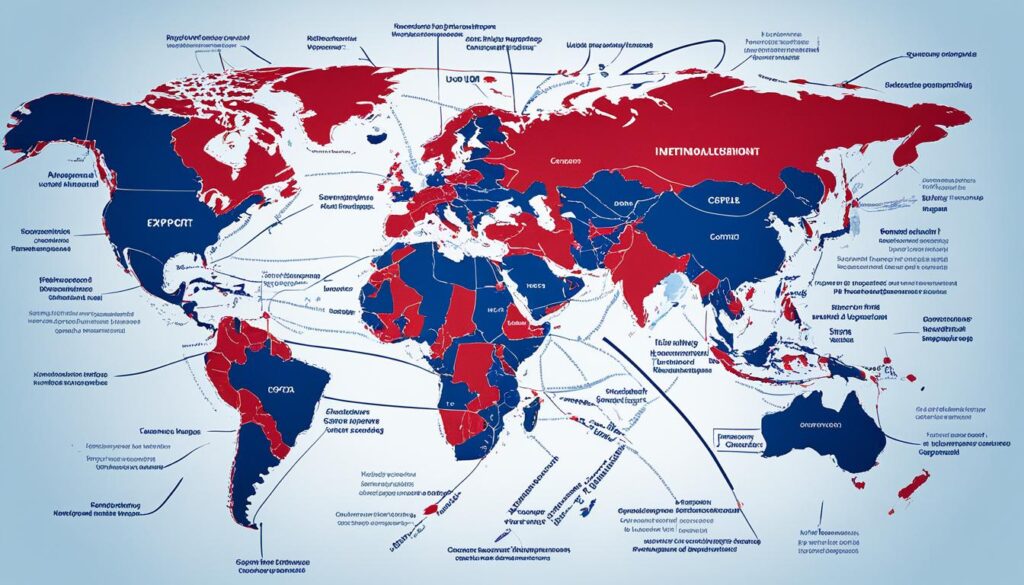
Complying with export licensing requirements is crucial for businesses to operate legally and avoid potential penalties. Understanding the regulations and consulting the appropriate licensing agencies can help exporters navigate the licensing process smoothly and ensure compliance with U.S. government regulations.
Export Administration Regulations (EAR)
The Export Administration Regulations (EAR) play a crucial role in controlling the export of U.S.-sourced items and some internationally-sourced items. Administered by the Bureau of Industry and Security (BIS), the EAR regulates a wide range of items, including those with commercial and military applications, as well as purely commercial or purely munitions items.
Classification is a key aspect of the EAR, and it is done using an Export Control Classification Number (ECCN) assigned to each item. To determine the ECCN for a specific item, exporters must consult the Commerce Control List (CCL).
Most items listed as EAR99 on the CCL do not require an export license. However, it is important to note that depending on the destination and end use of the item, a BIS export license may still be required.
The following table provides a summary of key points related to the Export Administration Regulations (EAR):
| Export Administration Regulations (EAR) | |
|---|---|
| Administering Agency | Bureau of Industry and Security (BIS) |
| Items Regulated | Most U.S.-sourced items and some internationally-sourced items |
| Classification System | Export Control Classification Numbers (ECCN) |
| Classification Source | Commerce Control List (CCL) |
| Licensing Requirement | Varies based on destination and end use |
Note: The ECCN and the BIS export license number must be included in the export documentation to ensure compliance with the Export Administration Regulations (EAR).
Determining the ECCN
To determine the appropriate ECCN for an item, exporters can follow these methods:
- Obtain classification information from the manufacturer or supplier.
- Self-classify using the Commerce Control List (CCL).
- Request a Commodity Classification from the Bureau of Industry and Security (BIS).
Having the correct ECCN readily accessible is essential for proper export documentation and inventory management.
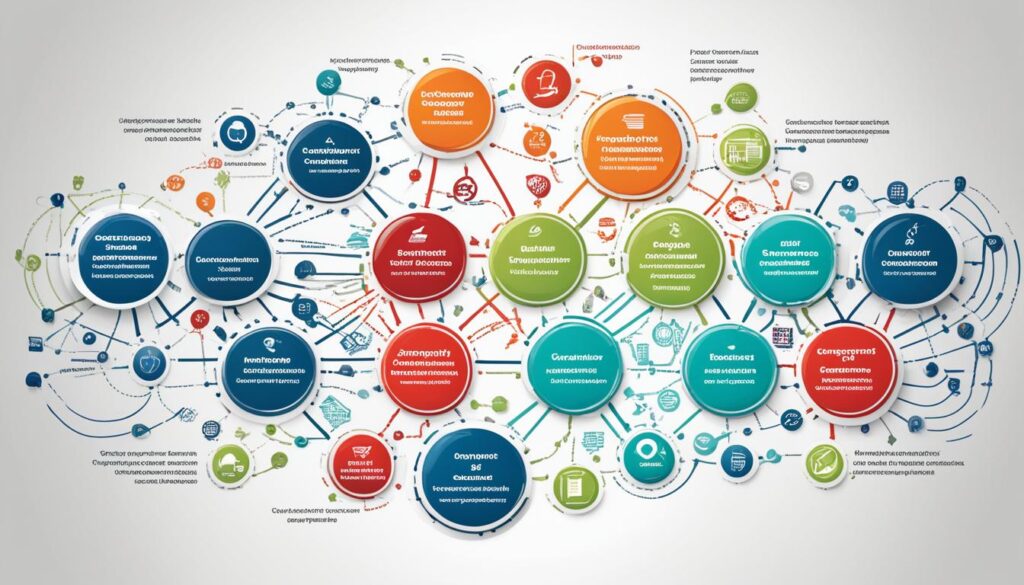
Export Compliance Program (ECP)
To ensure compliance with the Export Administration Regulations (EAR), exporters can establish an Export Compliance Program (ECP). An ECP helps analyze information and decisions related to exports and ensures that they are integrated into an organized system. The core elements of an effective ECP include sufficient record keeping, classification of items, and compliance with licensing requirements.
Under the Export Administration Regulations (EAR), exporters are required to maintain accurate and up-to-date records of their export transactions. These records should include information such as the description and value of the exported items, the parties involved in the transaction, and the license or license exception used for the export. The Export Control Classification Number (ECCN) assigned to each item should also be recorded.
A comprehensive record keeping system not only helps exporters in maintaining compliance with regulatory requirements, but also aids in the efficient management of export-related data. It enables businesses to easily retrieve and provide documentation in the event of an audit or investigation.
Classification of items is another crucial aspect of export compliance. It involves identifying the Export Control Classification Number (ECCN) assigned to each item and determining whether a license or license exception is required for its export. The ECCN determines the level of control placed on an item and helps exporters understand the applicable regulations and licensing requirements.
Compliance with licensing requirements is essential for export operations. Exporters must ensure that they obtain the necessary licenses or qualify for license exceptions before exporting controlled items. Failure to obtain the proper licenses or exceptions can result in severe penalties and legal consequences.
To establish an effective Export Compliance Program (ECP), it is advisable for the person responsible for managing the company’s plan to attend EAR and export-control seminars. These seminars provide valuable insights into the regulatory landscape and best practices for compliance. Seeking guidance from the Bureau of Industry and Security (BIS) can also help businesses navigate the complexities of export regulations.
A written compliance plan is recommended as part of the Export Compliance Program (ECP). This plan should outline procedures for record keeping, item classification, and obtaining licenses. It should also include guidelines for employee training, internal audits, and periodic assessments to ensure ongoing compliance with export regulations.
Sample Record Keeping Checklist:
| Record | Description |
|---|---|
| Item Description | A detailed description and technical specifications of the exported item. |
| Item Value | The monetary value of the exported item. |
| Export License or Exception | The license or license exception used for the export. |
| Export Control Classification Number (ECCN) | The ECCN assigned to the exported item. |
| Party Information | Details of the parties involved in the export transaction, including their names, addresses, and contact information. |
| End Use Statement | A statement indicating the intended use of the exported item. |
| Shipping Documents | Documentation related to the shipment, such as bills of lading, airway bills, or commercial invoices. |
| Internal Communication | Any internal communication related to the export transaction, such as emails, memos, or meeting minutes. |
| Export Commodity Control Number (ECCN) Lookup | Documentation and results of the ECCN lookup for each item. |
| License Application | Documentation related to the application for an export license, including any correspondence with licensing authorities. |
| License Denial or Approval | Documentation of the final decision on the license application. |

Determining Export License Requirements
When it comes to determining whether an export license is required, exporters have three main options. They can obtain classification information from the manufacturer or supplier, self-classify using the Commerce Control List (CCL), or request a Commodity Classification from the Bureau of Industry and Security (BIS). These methods help exporters determine the Export Control Classification Number (ECCN) of their items, which is crucial in deciding if an item is subject to the Export Administration Regulations (EAR).
- Obtain classification information from the manufacturer or supplier
- Self-classify using the Commerce Control List (CCL)
- Request a Commodity Classification from the Bureau of Industry and Security (BIS)
Once the ECCN has been determined, exporters can proceed with the appropriate actions. If an item falls under the jurisdiction of the U.S. Department of Commerce and is not listed on the CCL, it is designated as EAR99. However, it is important to note that even items classified as EAR99 may still require a license depending on the destination and end use.
To ensure compliance, it is crucial for exporters to have the correct ECCN and license numbers readily accessible in their export documentation and inventory management systems. This allows for efficient record-keeping and streamlined processes.
| Methods for Determining Export License Requirements | Advantages |
|---|---|
| Obtain classification information from the manufacturer or supplier | Provides accurate and reliable classification information |
| Self-classify using the Commerce Control List (CCL) | Gives exporters more control over the classification process |
| Request a Commodity Classification from the Bureau of Industry and Security (BIS) | Ensures expert guidance in determining the correct classification |

Other Agencies with Export Control Requirements
In addition to the Bureau of Industry and Security (BIS), there are several other U.S. government agencies that have export control requirements. These agencies play a crucial role in regulating specific areas of exports to ensure national security, foreign policy objectives, and the integrity of international trade.
International Traffic in Arms Regulations (ITAR)
The International Traffic in Arms Regulations (ITAR) is a set of regulations administered by the U.S. Department of State. ITAR controls the export and temporary import of defense articles and services included in the United States Munitions List (USML). It is designed to safeguard U.S. national security by preventing the unauthorized transfer of sensitive defense technologies to foreign countries or entities. Compliance with ITAR is essential for businesses involved in the export of defense items and services.
Office of Foreign Assets Control (OFAC)
The Office of Foreign Assets Control (OFAC) is a part of the U.S. Department of the Treasury. It administers and enforces economic and trade sanctions based on U.S. foreign policy and national security goals. OFAC controls the movement of goods, services, and funds linked to designated individuals, organizations, and countries. Businesses must be aware of OFAC regulations to ensure compliance and avoid engaging in prohibited financial transactions.
Nuclear Regulatory Commission (NRC)
The Nuclear Regulatory Commission (NRC) regulates the export of nuclear materials, equipment, and technology. The NRC ensures that nuclear exports do not contribute to the proliferation of nuclear weapons or the diversion of materials for unauthorized use. Exporters dealing with nuclear-related products must adhere to NRC regulations and obtain the necessary licenses and authorizations to ensure the safe and secure transfer of nuclear materials.
U.S. Food and Drug Administration (FDA)
The U.S. Food and Drug Administration (FDA) has export control requirements for certain products, particularly pharmaceuticals and medical devices. The FDA regulates the export of these products to ensure their safety, efficacy, and compliance with relevant standards. Businesses involved in exporting pharmaceuticals and medical devices need to meet FDA requirements and obtain the necessary approvals and certifications.
Exporters should thoroughly review and understand the export control requirements imposed by these government agencies to ensure compliance in their specific transactions. By adhering to these regulations, businesses can operate responsibly and contribute to U.S. national security and foreign policy goals. Failure to comply with these requirements can result in severe penalties and legal consequences.
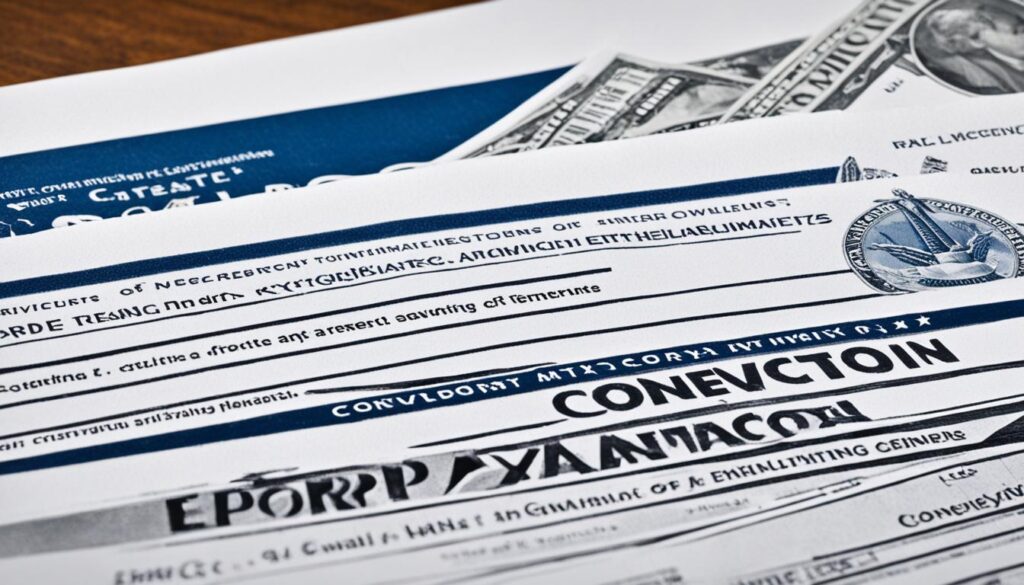
| Agency | Description |
|---|---|
| International Traffic in Arms Regulations (ITAR) | Controls the export and temporary import of defense articles and services included in the United States Munitions List (USML). |
| Office of Foreign Assets Control (OFAC) | Administers and enforces economic and trade sanctions based on U.S. foreign policy and national security goals. |
| Nuclear Regulatory Commission (NRC) | Regulates the export of nuclear materials, equipment, and technology to prevent nuclear proliferation. |
| U.S. Food and Drug Administration (FDA) | Regulates the export of pharmaceuticals and medical devices to ensure safety, efficacy, and compliance with standards. |
“Compliance with export control requirements imposed by agencies such as ITAR, OFAC, NRC, and FDA is essential for businesses engaged in international trade. It not only ensures compliance with U.S. laws and regulations but also contributes to maintaining national security and global nonproliferation efforts.”
Multilateral Export Control Regimes
The United States actively participates in various multilateral export control regimes to counter the proliferation of weapons of mass destruction (WMD) and regulate conventional weapons and related materials. These regimes are international frameworks aimed at promoting global security, preventing destabilization, and ensuring responsible trade practices.
The U.S. Department of Commerce’s Bureau of Industry and Security (BIS) plays a crucial role in implementing and enforcing these multilateral export control measures. BIS collaborates with international partners to develop guidelines, coordinate efforts, and establish standards for export controls.
By complying with these multilateral export control regimes, businesses contribute to global nonproliferation efforts and help maintain the integrity of international trade. These measures prevent the unauthorized transfer of sensitive technologies and dangerous materials, safeguarding global security interests.
Regimes Addressing Weapons of Mass Destruction
- Nuclear Suppliers Group (NSG): NSG is a group of nuclear supplier countries that aim to prevent the proliferation of nuclear weapons by controlling access to nuclear technology and materials.
- Australia Group (AG): AG is an informal forum dedicated to curbing the spread of chemical and biological weapons. It sets guidelines for export controls on dual-use chemical and biological items.
- Missile Technology Control Regime (MTCR): MTCR restricts the proliferation of missiles capable of carrying weapons of mass destruction, including systems that can be used for the delivery of nuclear, chemical, and biological weapons.
- Nuclear Non-Proliferation Treaty (NPT): NPT is an international treaty aimed at preventing the spread of nuclear weapons, promoting disarmament, and facilitating the peaceful use of nuclear energy.
These multilateral export control regimes work in tandem to enhance global security, reduce the risks associated with WMD proliferation, and foster peace and stability among nations.
| Regime | Objective | Membership |
|---|---|---|
| Nuclear Suppliers Group (NSG) | Prevent nuclear weapons proliferation by controlling nuclear technology and materials | 48 participating governments |
| Australia Group (AG) | Curbing the spread of chemical and biological weapons by setting export control guidelines | 43 participating governments |
| Missile Technology Control Regime (MTCR) | Restricting the proliferation of missiles capable of carrying WMD | 35 member countries |
| Nuclear Non-Proliferation Treaty (NPT) | Preventing the spread of nuclear weapons and promoting disarmament | 191 states party to the treaty |
The table above provides an overview of selected multilateral export control regimes addressing weapons of mass destruction.
Through their membership and adherence to these multilateral export control regimes, nations demonstrate their commitment to maintaining global peace and security. By upholding these measures, businesses play a crucial role in ensuring the responsible transfer of sensitive technologies and preventing the misuse of weapons of mass destruction.
Role of Federal Agencies in Trade Regulation
The Department of Commerce (DOC) and the International Trade Administration (ITA) play crucial roles in trade regulation in the United States.
The DOC is responsible for promoting international trade, economic growth, and technological advancement. Through its various bureaus and offices, the DOC works to develop and implement policies that support businesses, both domestically and internationally. The DOC also conducts research, collects data, and provides valuable insights to policymakers, ensuring that trade regulation aligns with the ever-evolving global landscape.
The ITA, a part of the DOC, focuses specifically on improving the international trade position of the United States. It works with businesses and industries to enhance their competitiveness in global markets, provides support to exporters, and tackles trade barriers to create a level playing field. The ITA also collaborates with other U.S. agencies and foreign governments to promote fair trade practices and maintain the U.S.’s strategic technology leadership.
| Department of Commerce (DOC) | International Trade Administration (ITA) |
|---|---|
| Promoting international trade | Improving the international trade position of the United States |
| Supporting economic growth and technological advancement | Enhancing competitiveness in global markets |
| Developing and implementing trade policies | Tackling trade barriers and unfair practices |
| Conducting research and collecting trade data | Providing support to exporters |
| Collaborating with other U.S. agencies and foreign governments | Promoting fair trade practices |
By leveraging the expertise and resources of the Department of Commerce and the International Trade Administration, businesses can navigate the complex landscape of trade regulation, gain a competitive edge in the global market, and contribute to the economic growth of the United States.
Through their collaborative efforts, these federal agencies ensure the enforcement of trade regulations, monitor compliance, and foster a conducive environment for international trade. By upholding trade regulations and promoting fair trade practices, the DOC and ITA contribute to a level playing field, protect intellectual property rights, and safeguard national security interests.
It is essential for businesses to stay informed about the latest developments in trade regulation and leverage the resources provided by the Department of Commerce and the International Trade Administration. By doing so, businesses can navigate the complexities of global trade, seize opportunities, and thrive in today’s rapidly evolving economic landscape.
Trade Regulation and the U.S. Constitution
The U.S. Constitution, specifically the Commerce Clause, grants Congress exclusive power over trade activities between states and with foreign countries. This constitutional provision establishes the framework for trade regulation in the United States.
Under the Commerce Clause, trade regulation within a state is the responsibility of the state itself, while Congress has the authority to regulate interstate and international trade. This division of authority aims to strike a balance between centralized regulation and state autonomy, ensuring a coherent and efficient trade system within the country.
However, the distinction between intrastate and interstate trade is not always clear-cut. Oftentimes, economic activities and supply chains span across state borders, blurring the line between the two categories. This complexity poses challenges for policymakers and regulators in effectively overseeing trade activities and enforcing trade regulations.
Trade regulation plays a crucial role in maintaining a fair and competitive market environment both nationally and internationally. By regulating commerce, governments aim to protect consumers, foster economic growth, ensure the free flow of goods and services, and promote fair competition. Additionally, trade regulation addresses issues such as taxation, consumer protection, quality standards, and intellectual property rights, among others.
Trade regulation is essential for safeguarding the interests of businesses and consumers alike, fostering economic stability and growth, and creating a level playing field in the global marketplace.
Let’s look at how the U.S. government and federal agencies collaborate to enforce trade regulations and ensure compliance in Section 8.
Resources for Trade Regulation
The Bureau of Industry and Security (BIS) is committed to supporting businesses in understanding and complying with trade regulations. To assist in this effort, BIS provides a range of valuable resources and tools that can help businesses navigate the complexities of trade compliance.
One of the resources offered by BIS is a comprehensive list of red flags to help businesses identify potential violations. By familiarizing themselves with these red flags, businesses can proactively detect and address any compliance issues that may arise during their trade operations.
BIS also offers guidance on “Know Your Customer” practices, which helps businesses establish effective due diligence measures to ensure that their export transactions are conducted with legitimate parties and do not pose any risks to national security or foreign policy interests.
In addition, BIS conducts regular training sessions through its seminar program, covering various aspects of exporting and trade compliance. These seminars provide businesses with the opportunity to enhance their knowledge, stay up-to-date with the latest regulations and requirements, and learn best practices from industry experts.
Furthermore, BIS’s Export Enforcement team plays a crucial role in enforcing trade regulations. They conduct site visits to verify compliance and investigate potential violations. By actively engaging with BIS’s Export Enforcement, businesses can gain valuable insights into their compliance practices and ensure that they are aligning with the requirements set forth by the Bureau.
For businesses operating in the U.S. market, utilizing these resources provided by the Bureau of Industry and Security is essential. By doing so, businesses can strengthen their understanding of trade regulations, enhance their compliance practices, and minimize the risk of encountering legal issues. Staying updated with the latest developments and requirements in trade regulation is key to maintaining a successful and compliant trade operation.
